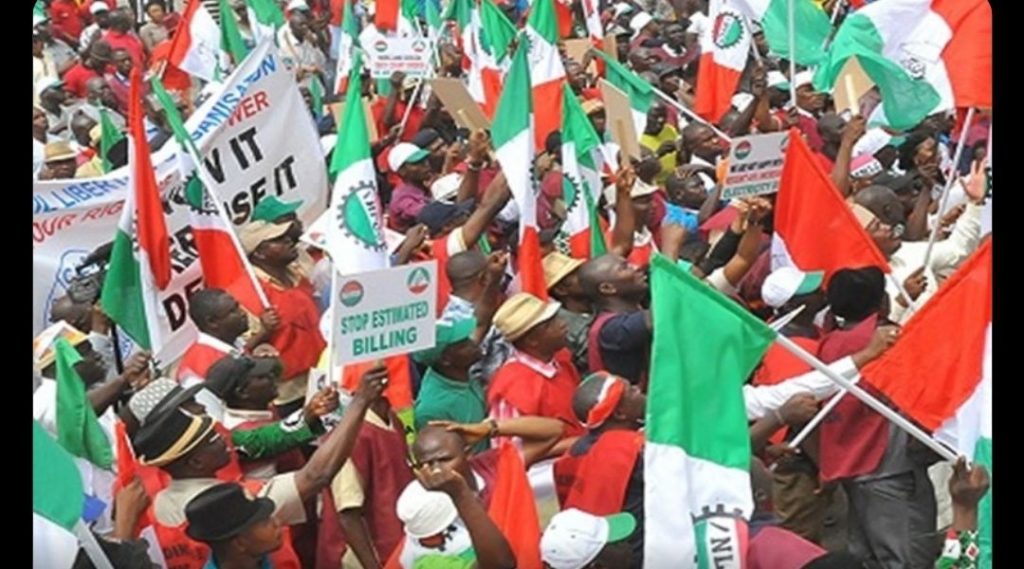The escalating cost of living in Lagos, particularly regarding housing and transportation, has become a critical concern for workers residing in the state and its neighboring areas. Sessi Funmi, the Lagos State chairman of the Nigeria Labour Congress (NLC), has voiced the urgent need for the Lagos State government to prioritize the provision of affordable housing and improved infrastructure for its workforce. The current situation forces many workers to seek residence in bordering Ogun State, where significantly lower housing costs are available, but this has created a complex interplay of challenges relating to infrastructure development, tax allocation, and inter-state cooperation. Funmi’s call to action underscores the imperative of addressing these issues to foster a more sustainable and equitable environment for workers in the region.
One of the primary drivers of this complex situation is the stark disparity in housing costs between Lagos and Ogun State. The high demand and limited supply within Lagos have driven property prices to exorbitant levels, making homeownership or even renting a viable option for many workers. This has fueled an exodus to neighboring Ogun State, where housing is significantly more affordable. However, this migration has placed a strain on Ogun State’s infrastructure, which has struggled to keep pace with the influx of new residents. This has resulted in inadequate road networks, insufficient public transportation, and other infrastructural deficiencies, impacting the quality of life for residents, including the Lagos-based workers who contribute significantly to Ogun State’s tax revenue. This imbalance has sparked a debate about the equitable distribution of resources and the responsibility of each state to provide adequate services for its residents, regardless of their place of employment.
Funmi’s appeal to the Lagos State government centers on strategic partnerships with private investors to develop affordable housing estates in underutilized areas within the state. She suggests focusing on areas such as Badagry, Ikorodu, and Epe, which currently offer greater potential for development and expansion. By leveraging these areas, the government can create new housing opportunities, alleviate the pressure on existing infrastructure within the more densely populated areas of Lagos, and provide workers with the option to live closer to their places of employment. This strategic approach would not only benefit Lagos workers but also contribute to the overall economic development of these currently underutilized areas, fostering a more balanced and sustainable growth pattern for the entire state.
The issue of cross-border taxation adds another layer of complexity to this situation. While Lagos-based workers residing in Ogun State contribute to the latter’s tax revenue through various means, including income tax and consumption taxes, Ogun State’s infrastructure development has not kept pace with this influx of revenue. This has led to accusations of neglect and a sense of unfairness among Lagos workers who feel they are contributing to a system that does not adequately serve their needs. Funmi’s criticism of Ogun State’s infrastructure, particularly the road networks in areas heavily populated by Lagos workers, highlights this disconnect and calls for greater accountability and transparency in the allocation and utilization of tax revenue. The current situation underlines the need for inter-state collaboration and a more equitable distribution of resources to ensure that infrastructure development aligns with the needs of the population, regardless of their place of employment.
Beyond the immediate concerns of housing and infrastructure, Funmi also emphasizes the importance of ethical conduct and accountability within the workforce. She calls on workers to uphold integrity and reject corruption and malpractice, recognizing that these practices ultimately undermine the very systems they rely on. Her appeal to personal responsibility serves as a reminder that building a stronger and more equitable society requires not only government action but also the active participation and ethical conduct of every individual. By fostering a culture of integrity and accountability, workers can contribute to a more just and sustainable future for themselves and their communities.
As the year 2025 unfolds, Funmi’s message serves as a timely reminder of the ongoing challenges facing workers in Lagos and the surrounding areas. Her call for collaboration between the government and the workforce highlights the importance of a concerted effort to address these issues and build a more sustainable and equitable future. The provision of affordable housing, the development of adequate infrastructure, and the promotion of ethical conduct are all essential components of this endeavor. By working together, the government, the private sector, and the workforce can create a more vibrant and prosperous region that benefits all its residents.


